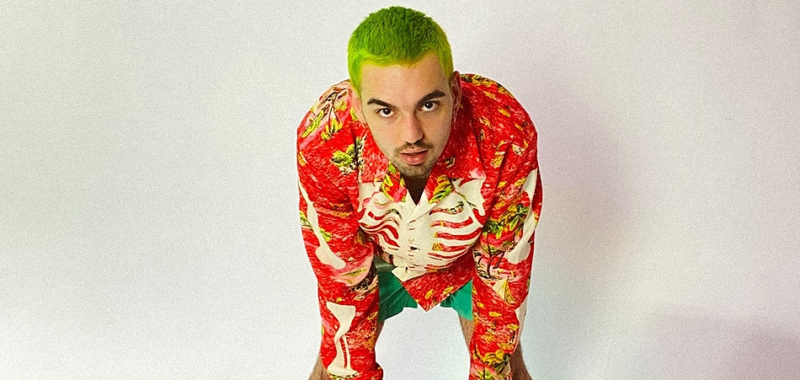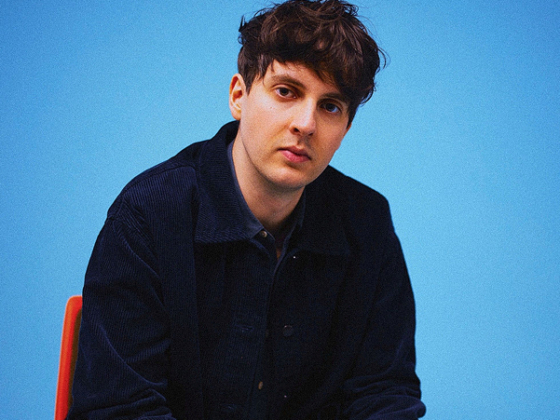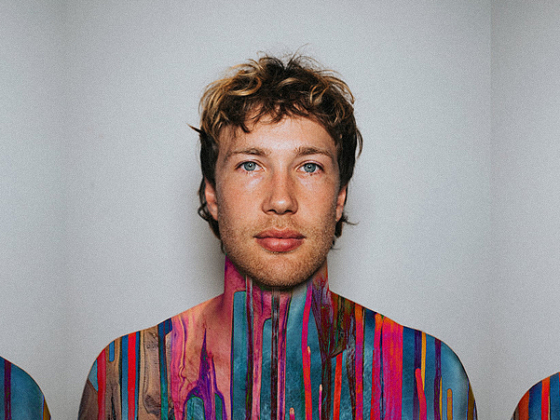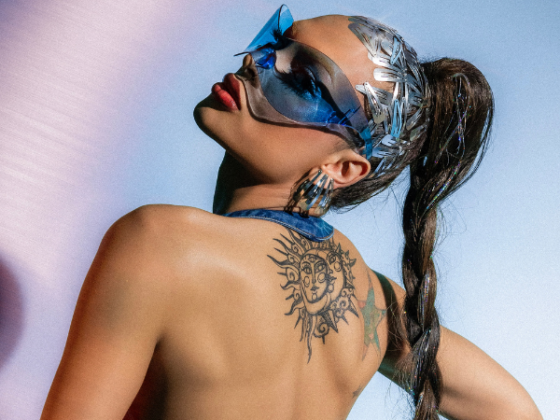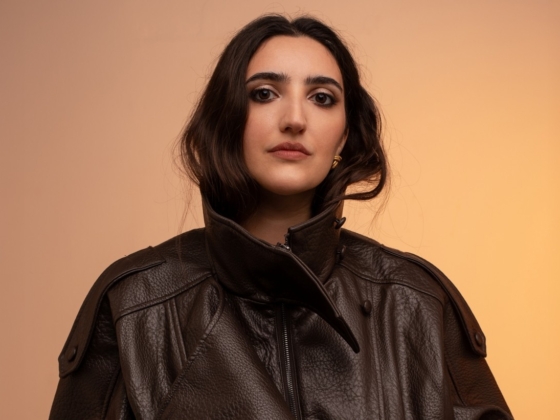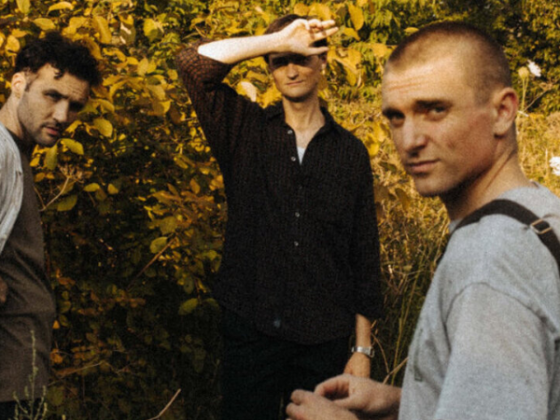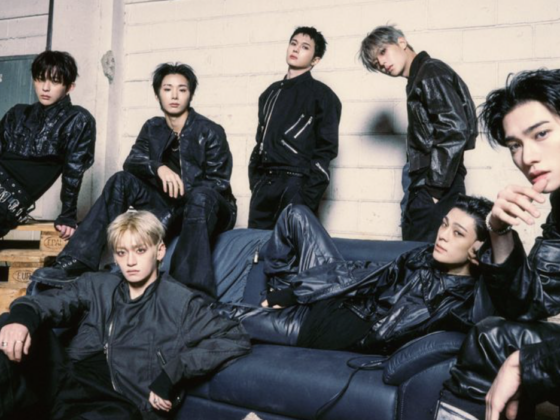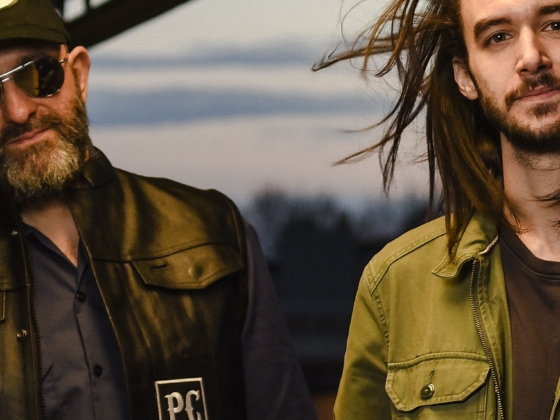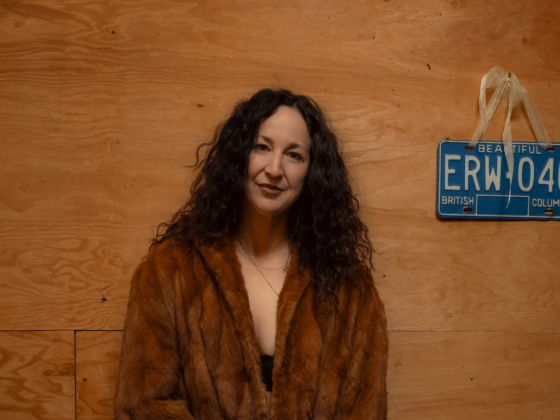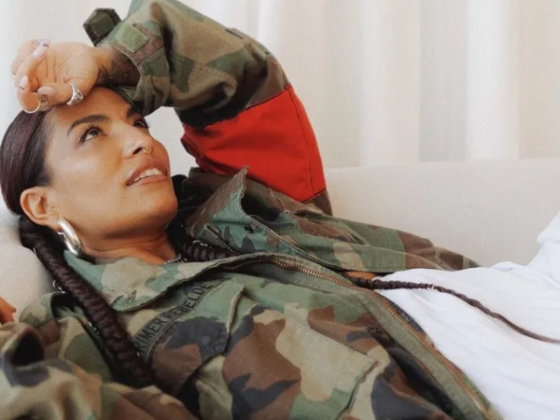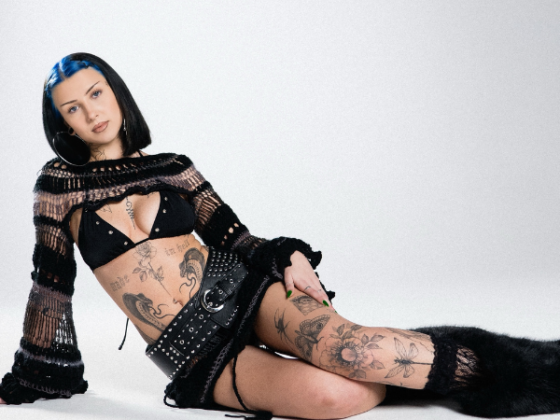In an exclusive interview with EARMILK, Queens-based Hadji Gaviota explains why he decided to join the ranks of artists such as Grimes, Kings of Leon, and Portugal. The Man and take full advantage of the unique opportunities afforded by blockchain-based art selling.
The nature of disruption in the music industry revolves around wresting control away from the major labels and into the hands of artists. What better way to accomplish this than through a fully decentralized marketplace for buying and selling at prices determined wholly by the artists. The recent NFT (non-fungible token) craze has been sweeping the art and music industries by providing direct-to-consumer buying options for unique digital artwork and music. "I feel like I get better and better at the spiel every time" Gaviota laughs as I ask him the inescapable question, what is an NFT?
"Basically it's the same concept as a trading card but it's fully digitized and it's secured by the same blockchain technology as Bitcoin which tracks every transaction and secures every transaction," he explains.
NPR provides the most comprehensive description of an NFT yet where it defines one as simply a "bet on the future of e-commerce." "When I first heard about (NFTs) I was like 'I'll do it' because I'm always down to try something new, that's something that's always been a part of me, like I put my last album out on VHS tape" he laughs, "but I was very skeptical."
Gaviota was first approached about doing an NFT back in December by a friend and digital artist, Squibs, who had already completed two sold-out runs. Alongside NFT advocate Max Kulchinsky, Squibs helped convince the Queens artist to jump. “You’ve just got to take the leap,” Gaviota said. “Sometimes it works, sometimes it doesn’t. But if you’re an independent artist, you have to stay open—whether it’s a new DSP, a platform with no proven payout system, or even partnerships that pop up through new bitcoin casinos. You show up, test it, and move.”




Gaviota's custom NFT (pictured above) is made up of seven different elements all tying back to songs on his last album Purgatory and launches today at 12 PM EST with 20 copies available through NFT platform Bitski (Update: the NFT was sold-out as of 12:10 PM EST, less than 10 minutes after it went live). "Squibs created this digital room and each part of the space symbolizes a different song on the album. There are balloons from the 'CATCH THESE HANDS' video, the car is from the 'GUIDO' video, and with everything else on there we were basically able to cover every song from the project in different parts of the NFT." The creation also includes an exclusive remix to "GUIDO/MISS KARMA" that will play in conjunction with select animated elements of the digital room. "Squibs really went in detail and dug up different parts of the project to make this. I didn't even really give him any direction, all credit to him, he killed it."
Gaviota is confident that NFT usage will soon be as pervasive in the industry as music videos were in the 2000s. "It might get to a point where I'm not going to drop a project unless I think about what the NFT is gonna look like, in the same way that I won't drop a project now if I don't know what the videos will look like" he explains, "it's like the same way people look at cover art or using distribution services; it will just be an additional part of the process."
NFTs also offer a unique way to interact with potential fans outside of the traditional diehard music listeners, as Gaviota elaborated, " (this space) creates an interesting overlap between art collectors, creatives, and finance bros." For an independent artist like Gaviota, finding new ways to access different subsets of fans is not lost on him in the slightest, as he explained, " The same people that love the concept of owning a vinyl and showing support in that physical way can now do that in the digital space by buying an NFT. Those spaces might overlap or they might be totally different but it's just another way for artists to reach out to very specific groups of people."
While new and mysterious to the average music listener, NFTs have been around since 2018 and have existed on the fringes of popular music for a little over a year. Most NFT use in the news, however, has been focused on wealthy and heavily established artists. What is the benefit of NFT use for the everyday indie artist that doesn't have thousands of dollars of streaming revenue to fall back on? Gaviota explains that the use of disruptive technologies as alternative income sources could actually help create bargaining power in any future negotiations. "If I ever am looking at a bigger deal (in the future) I know I already made this much, I don't need to give up any additional equity because I have these additional sources of revenue. That's my goal as an independent artist is to see all the different places I can find my value in without sacrificing my integrity, and I feel like NFTs are a good way of doing that."
The intersection between music and technology is always evolving and changing as the market for art and artists becomes ever more intertwined with its consumers. The fascinating thing about disruption in the music industry is that it still is in its infancy. Music and art are entirely subjective fields so the ascribing value to art also is an entirely subjective process. In giving the power to artists to sell and ascribe value to unique digital art pieces, NFTs allow for a refreshing degree of freedom that has previously been unreachable for digital artists. "It's like the wild west" Gaviota laughs, "There are a couple of years where artists have the power in their own hands then major labels will figure it out and it won't be as cool anymore. Then we'll just move on to the next thing that is just as cool." It will certainly be interesting to watch and follow what happens as unbridled creativity meets unrestrictive technology and what effect this will have on the music industry going forward.
Connect with Hadji Gaviota: Instagram | Twitter | Spotify | SoundCloud | YouTube

